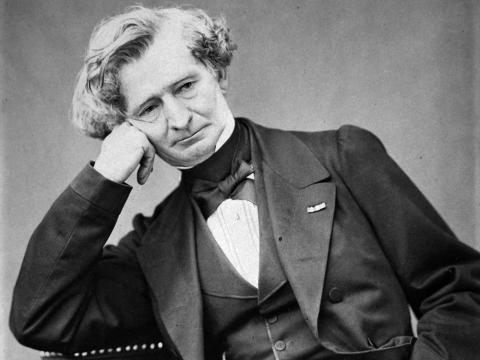You are here
Passionate Expression
Hector Berlioz (1803-1869) was a French composer of the romantic era best known for his piece Symphonie Fantastique. In 1843, Berlioz wrote Roman Carnival Overture, reworked from his 1838 opera Benvenuto Cellini. While the opera was decidedly unpopular, his overture was an immense success and became an independent concert piece. Berlioz said of his compositions “the prevailing characteristics of my music are passionate expression, rhythmic animation, and unexpected turns.”
Berlioz was born and raised in a small provincial town in the French Alps and from a young age had a deep passion for poetry, literature, theater, and music. While his father did teach him music, he wished for Hector to follow in his footsteps and become a physician. Hector was sent to Paris to study medicine in 1821 and while he did study science for one year, he took every opportunity to attend the Paris Opera. He eventually convinced Jean-Francois Lesueur, professor of composition at the Paris Conservatoire, to accept him as a pupil. Hector’s choice to pursue a career in music caused great tension within his family for several years. He nevertheless persisted, saying that he wouldn’t “take part in horrible operations instead of giving myself body and soul to music, sublime art whose grandeur I was beginning to perceive!”
Berlioz’s Roman Carnival Overture is a rousing showpiece, but it also contains the passionate expression that reflects the composer’s romantic nature. The beautiful melody comes from the opera’s stunning love duet. Join us in the audience to hear this melody played by English horn and supported skillfully by the orchestra.
Berlioz also considered an orchestra’s brass section more than mere accompaniment and Roman Carnival Overture does not disappoint in this regard! The ESO’s brass section soars, driving the musical fireworks in a rousing finish that you won’t want to miss!
